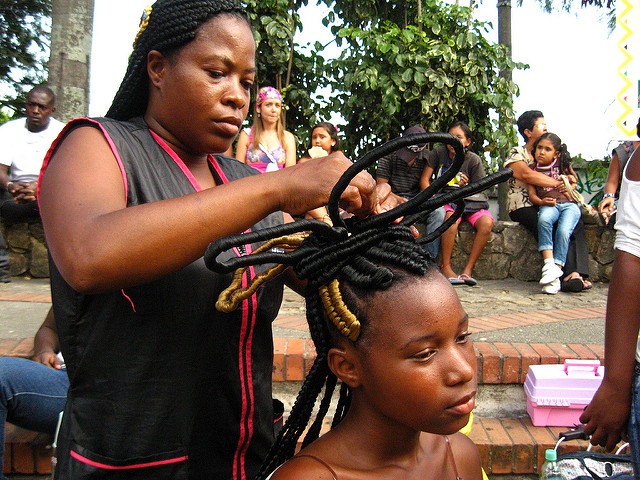There are many enduring myths about black hair. Credit: Marcela Arango.
“Your hair feels like pubic hair.” That was one of the first insults that someone hurled at my hair. She was a junior at my school. She would touch my hair and repeat this sentence to all present. I had to threaten her with violence to get her to stop touching my hair and comparing it to her pubes.
This is one of the first dilemmas that black people face: do I let people touch my hair and under what circumstances? The question “can I touch it?” becomes one of the most awkward social moments and can break relationships before they even start.
This fascination with the texture of black hair (please don’t call it “ethnic”) is not new. In slave societies, white women would often hack off the hair of their enslaved female servants because it supposedly “confused white men” .
Today, black women with nappy hair – that is, natural and chemical-free – are desirable despite the popular discourse to the contrary. Think for example of how Lupita Nyong’o has become a household name even though she is nappy and has dark skin.
It’s not just fashion or trends: throughout history, black women’s hair has fascinated artists and photographers and has been closely linked to radical political movements such as the Black Panthers and South Africa’s own Black Consciousness Movement. It then seems like a paradox for the young women at South Africa’s Pretoria Girls High School to be told that they should “discipline” their hair by relaxing it.
But it’s actually not a contradiction, since desire and fear often feed on each other. In the documentary produced and narrated by Chris Rock called “Good Hair”, the comedian Paul Mooney states it plainly: “If your hair is relaxed, white people are relaxed. If your hair is nappy, they are not happy.”
This is not just clever rhyming. Mooney is pointing to the fact that nappy hair is inevitably associated with something that is out of reach for “white people”. When you sport your natural hair, you are free; your hair is wild; you have a new “hairstyle” everyday; you are radiant; you are regal. These are out of reach for most people.
It is also about conformity. By choosing not to tease and tame your hair, you are also choosing to let your hair express its personality rather than look like everyone else’s hair.
Continued next page
(321 VIEWS)
